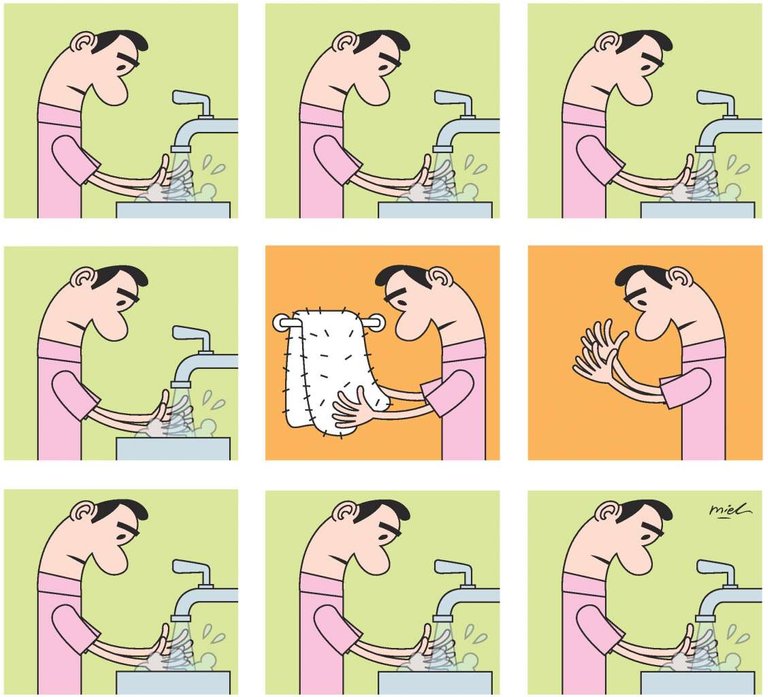Obsessive Compulsive Disorder - Different Types and Symptoms
Obsessive-Compulsive Disorder is a psychological disorder that is defined by persistent obsessions and disturbing, often irrational, fears about a specific person, situation, or situation regarding that person's appearance, actions, thoughts, and/or feelings. Obsessive compulsive disorder is much more common than most people think. According to the OCD Research Center at the University of American Psychology Association, " Approximately four million adults in America have OCD." Of those four million, over three million are affected by severe forms of the disorder. One out of every fifty adults has at least one obsessive-compulsive disorder episode in a year.
Obsessive-Compulsive Disorder, also called "OCD," involves urges to perform behaviors or rituals that are both difficult to resist and potentially embarrassing or painful. Compulsions or unwanted thoughts or actions are oftentimes associated with feelings of guilt or shame, making it difficult for patients to realize that what they are doing is not normal. For instance, if you are engaged in excessive hand washing because you are ashamed of your hands, or you repeatedly wash your hands because you are afraid that you are not washing them enough, you are engaging in obsessive-compulsive behaviors. These actions are not part of normal, healthy thinking processes. In fact, the very nature of the OCD behavior is to do things that are difficult or embarrassing to resist.
Obsessive-Compulsive Disorder is a serious disorder that can have a negative effect on a family life, especially when hoarding behaviors are present. The disorder often begins in childhood or early adolescence, but it can actually begin in pre-school age if the parent or caregiver is not able to help treat the OCD symptoms. Some families have members with hoarding disorders, but do not seek treatment due to embarrassment or fear. This family member may be "off the grid" and unreachable, which makes it even more challenging for the entire family to receive treatment. Family therapy can provide a way to address the OCD issues so that the disorder does not disrupt family life.
Many times, OCD symptoms are confused with other disorders or diseases. Individuals may try to tell their family doctor that they have some type of flu, even though they may feel fine. The patient may try to hide their illness, trying to avoid doctors and making it difficult to disclose their condition. In addition to treating the physical aspect of the disease, patients should consider also treating the mental side of it. There is a good chance that the person is suffering from obsessive-compulsive disorder symptoms because of negative thoughts and obsessions.
Obsessive-Compulsive Disorder is considered to be a behavioral disorder. The compulsive behaviors that patients exhibit often have no rational purpose and therefore cannot be learned. Compulsions are often used as a means of reducing the symptoms of anxiety or panic attacks. Individuals suffering from this disorder usually feel like they are living out a series of rituals, although these rituals may be random or repetitive. Many times these compulsions are not even performed for minutes at a time, but instead serve to increase the stress level of the individual or the situation at hand.
The excessive thoughts that cause OCD include the fear of germs, the fear of being alone, the fear of specific objects or thoughts, the fear of performing a ritual the correct way, the fear of performing a certain action in a public place, the fear of performing an activity in front of a crowd, or the fear of having or doing something in a particular way. OCD symptoms are extremely personalized, often stemming from irrational fears of scenarios that the individual has experienced or seen in the past. This behavior can become debilitating because the individual thinks that he or she is suffering from a heart condition, cancer, a stroke, or the common flu. Because of these fears, the individual is incapable of performing even the most basic tasks, such as picking up his or her favorite toy or completing a household chore, which further exacerbates the situation.
OCD begins with an exaggerated concern regarding germs, followed by the development of various additional symptoms. People who suffer from OCD believe that they are constantly plagued by unseen or unavoidable danger. This type of obsessive-compulsive disorder is so powerful that people who are susceptible to its dangers begin to question their existence and the safety of their environment. Some individuals suffer so much about their fear of germs that they are unable to shower for days in anticipation of a potential onset of a cold or other illness. These people develop severe anxiety over imagined health risks.
Other people may try to stop their compulsions by repeating the same actions, replacing them with more manageable thoughts. This type of behavior is known as "thought stopping," which means that a person attempts to control thoughts rather than allow the thoughts to control him or her. Compulsions are more common in people who have incomes that are low due to the lack of job stability or higher than normal monthly expenses. They may also be associated with other people's feelings of embarrassment, humiliation, or shame. Regardless of the type of obsessive compulsive disorder that a person suffers from, treating it can be difficult.
Sources
- https://www.mayoclinic.org/diseases-conditions/obsessive-compulsive-disorder/symptoms-causes/syc-20354432
- https://www.webmd.com/mental-health/obsessive-compulsive-disorder
- https://www.healthline.com/health/ocd/types-of-ocd
- https://www.verywellmind.com/what-are-the-different-types-of-ocd-2510663
Posted with STEMGeeks


Congratulations @larissalugo! You have completed the following achievement on the Hive blockchain and have been rewarded with new badge(s) :
Your next target is to reach 400 upvotes.
You can view your badges on your board and compare yourself to others in the Ranking
If you no longer want to receive notifications, reply to this comment with the word
STOPCheck out the last post from @hivebuzz:
Support the HiveBuzz project. Vote for our proposal!